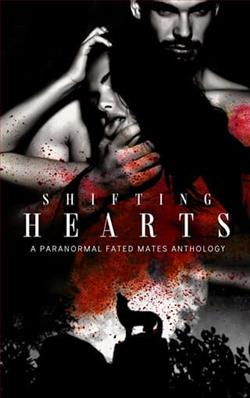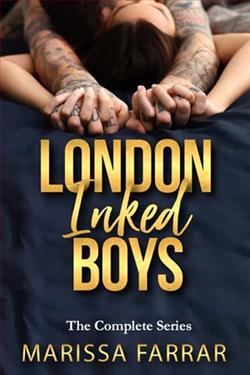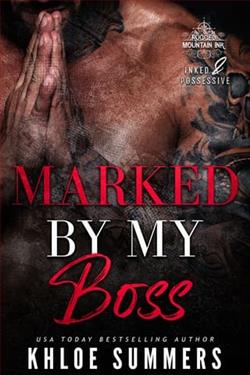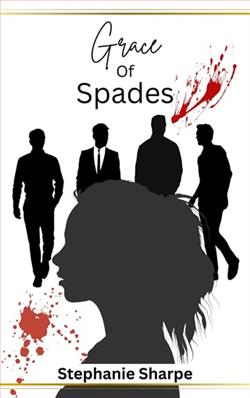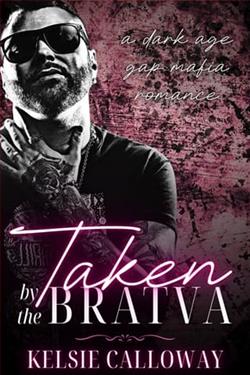Page 17 of Astaroth
“I’d imagine chasing you.”
“But you wouldn’t?”
Aster’s lips thinned. “I’d want to.”
“But youwouldn’t?”
“You don’t see yourself as wounded, but I do. Chasing you would do nothing. I’d become another unsafe place, another skeleton in your closet, and you’d never come back. So, no, I wouldn’t chase you. But damn, I would let you bite me. Break skin, even. Tear my throat out.”
They were talking about a thousand things at once, as if they’d started rambling in two, three, four different languages and fit the sentiment together, locked the details in, touched the heartbeat of every shared horror, and somehow, Briar understood. His throat thickened. He swallowed, forcing the stone pressed against his windpipe to dislodge.
“Chased things don’t stay for a reason,” Aster said. He took a step. Another. “Caged things always look for escape. Wounded things bite when they’re cornered. Can I take this?” He was there, suddenly, standing in front of Briar, reaching for the mug clasped between his quivering hands. Briar nodded. Carefully, Aster took the cup. “I know it’s a dick thing to say right now, but you’re allowed to feel everything. Every single thing.”
“A dick thing,” Briar repeated.How human.
Aster’s hands met his waist. Fingers caught on Briar’s silk robe, causing the material to pool in the arc of his thumbs. Palms framed his tailbone, holding him there. They stood like that, belly to belly, chest to chest, breathing quietly in the dark. Soap from a late shower still clung to Aster’s skin. Briar followed his ribcage to the soft, small feathers nearest his skin, and pushed his fingers through them. Being held and holding on becamea fixed point in Briar’s mind, something he hadn’t considered useful until then.
Of course, he’dwantedto be held. Of course, he’dwantedto hold.
Now he understood why he’d refrained. This easy closeness chipped away at his defenses.
“I’ll change your bandages tomorrow,” Aster said, nosing at Briar’s temple.
Briar nodded. He ran his hands along Aster’s shoulders. “Who gave you that scar? The one across your nose?”
“What?”
“When you showed me your ancient self—part of it, at least—you had another scar. Where did it come from?”
For the first time since they’d met, Aster held his breath. “Michael, obviously. You ever seen him undressed?” Briar shot him a sour look. Aster continued. “You might’ve tended to a wound—it’s a fair question. Anyway, you probably haven’t noticed the scar on his chest then.”
“No, I haven’t.”
“It’s much worse than mine.”
“Ah, this is a competition now.”
“Granted, he got my face—damn him—but I went for his heart. There’s no doubtIinflicted more pain.”
“Surely,” Briar said, almost laughing. He rested his cheek on Aster’s shoulder, paying mind to the soft, rhythmic circles being drawn on his back.
“Is there a reason you wanted to know?”
“Michael is the Archangel of War. I assumed, but I thought I’d ask.”
“And?”
“And. . . and nothing. I’m not the only one who’s faced the sharp end of his sword. Many of us have. I know him well enough to understand that.”Us. The word speared him. Hepaused, tracing another feather with his fingertip. “Knew him,” he corrected.
“You’re allowed to be angry.”
“I don’t know what to do with it, though. Anger festers. Spreads like mold.”
“Sometimes you need to let it out.”
Briar sighed through his nose. “Is that the best course? Giving into. . . Into, what?Rage?Desperation? The longing to—to. . . what? I don’t even know. I can’t place how I feel, I don’t know what this is.”
“Want to know what I think?” Aster asked. He brought his hand to Briar’s chin and pinched him there, thumb light on his bottom lip. “I think you’re tired.”










